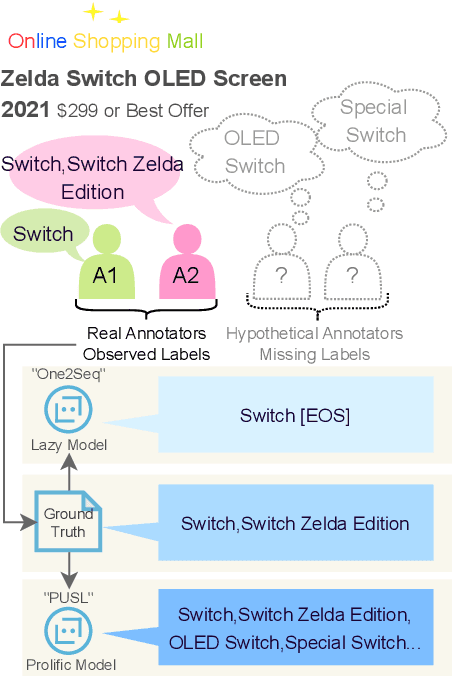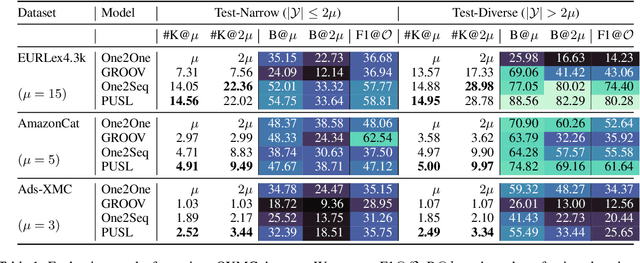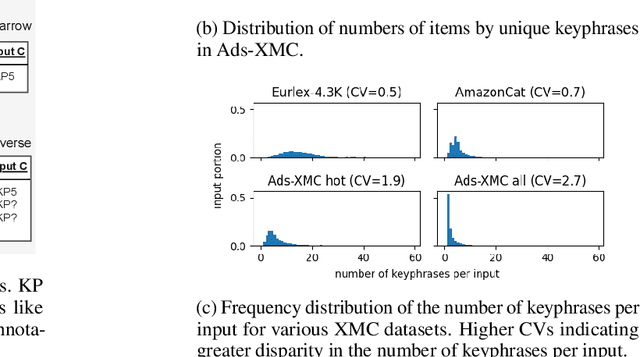Bensu Uçar
From Lazy to Prolific: Tackling Missing Labels in Open Vocabulary Extreme Classification by Positive-Unlabeled Sequence Learning
Aug 22, 2024



Abstract:Open-vocabulary Extreme Multi-label Classification (OXMC) extends traditional XMC by allowing prediction beyond an extremely large, predefined label set (typically $10^3$ to $10^{12}$ labels), addressing the dynamic nature of real-world labeling tasks. However, self-selection bias in data annotation leads to significant missing labels in both training and test data, particularly for less popular inputs. This creates two critical challenges: generation models learn to be "lazy'" by under-generating labels, and evaluation becomes unreliable due to insufficient annotation in the test set. In this work, we introduce Positive-Unlabeled Sequence Learning (PUSL), which reframes OXMC as an infinite keyphrase generation task, addressing the generation model's laziness. Additionally, we propose to adopt a suite of evaluation metrics, F1@$\mathcal{O}$ and newly proposed B@$k$, to reliably assess OXMC models with incomplete ground truths. In a highly imbalanced e-commerce dataset with substantial missing labels, PUSL generates 30% more unique labels, and 72% of its predictions align with actual user queries. On the less skewed EURLex-4.3k dataset, PUSL demonstrates superior F1 scores, especially as label counts increase from 15 to 30. Our approach effectively tackles both the modeling and evaluation challenges in OXMC with missing labels.
 Add to Chrome
Add to Chrome Add to Firefox
Add to Firefox Add to Edge
Add to Edge